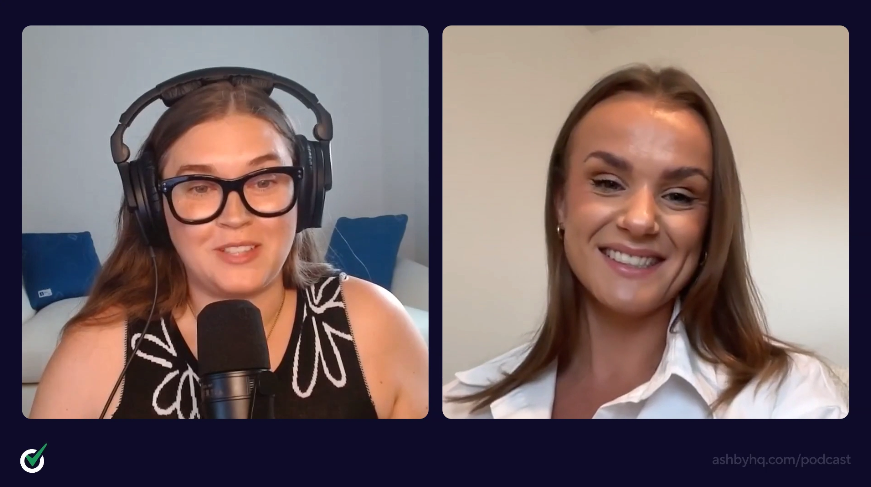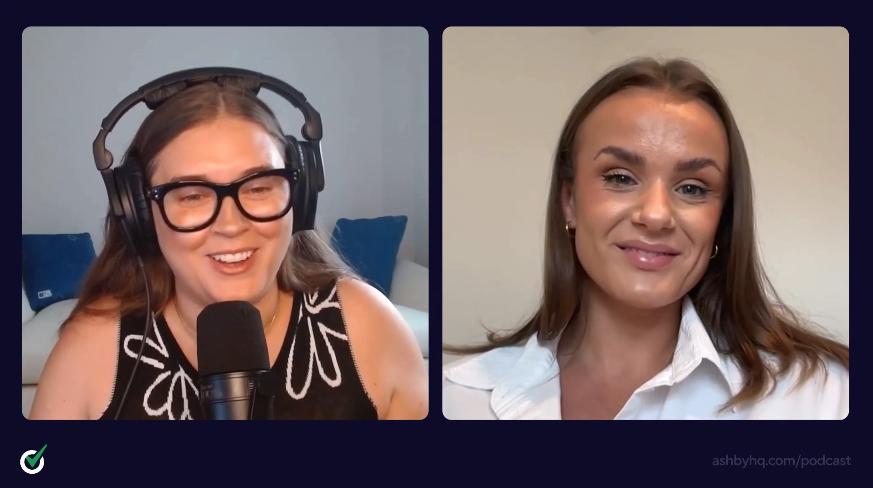The Five Cs of Closing Candidates
About this Episode
In this episode of Offer Accepted, Harriet Walker, Head of Talent at Superseed VC, breaks down her framework for the 5 Cs of Closing and why closing is a skill every hiring leader needs to master. With over a decade of experience across hypergrowth startups, global organizations, and now venture, Harriet partners with early-stage founders to help them scale by de-risking critical first hires.
She shares how founders can use clarity, credibility, and consistency to build conviction throughout the hiring process, not just at the offer stage. Harriet also explains why treating candidates as true partners, from setting expectations to creating space for real dialogue, makes closing top talent far more likely.
Topics
This Episode's Guest
Harriet Walker
Head of Talent @ SuperSeed VC
Harriet Walker is the Head of Talent at Superseed VC. She partners with early-stage founders to build hiring strategies, design interview processes, and secure high-impact hires. Previously, Harriet worked across hypergrowth startups and global companies, where she honed her expertise in strategic hiring, talent advising, and candidate experience.
Takeaway 1
Clarity turns interest into intent 💡
Harriet stressed that clarity is the foundation of closing. Too often, founders start hiring with only a loose idea of what they want, and lose sight of what is actually needed. Without clearly articulating why the role matters and how it connects to the company’s mission, candidates are left with uncertainty and quickly lose interest.
Why It Matters:
Candidates are making high-stakes life decisions when they consider a new role. Clear expectations reduce that risk by spelling out what success looks like and why the role exists. It proves the hire is intentional, not an afterthought, and signals that candidates will be set up for success because expectations, even if fluid, have been communicated.
Quick Tips
- Define the problem first, not the tasks. Harriet advises writing down the specific business challenge the company is hiring to solve. That should shape the JD vs a laundry list of responsibilities.
- Translate strategy into a JD. Instead of generic copy, show how the role connects to the company’s mission and values. Be upfront about realities like long hours or ambiguity if that is the environment.
- Test for clarity after the hire. At six or twelve months, ask if the role matched what was communicated. Use those insights to sharpen your next cycle.
Takeaway 2
Credibility is currency 💵
Candidates today are more skeptical than ever. After years of layoffs, rescinded offers, and poor candidate experiences, credibility has become one of the strongest competitive advantages in hiring. Harriet explained that the strongest teams win not only because of their mission and how they communicate it, but because candidates trust the people behind it.
Why It Matters:
Credibility changes how candidates evaluate risk. When leaders share their story with conviction, own both wins and losses, and create genuine connection, candidates feel more confident stepping into the unknown. It makes the leap into an early-stage company an informed decision, not a gamble.
Quick Tips
- Own your founder or team story. Harriet pushes leaders to explain why your company is uniquely positioned to solve this problem and what drives a founder’s obsession with the mission.
- Five minutes of candidate questions is not enough. Build in real space for dialogue. Let candidates explore how a founder and their organization operates instead of using interviews solely as a time for the company’s evaluation.
- Help candidates understand the why behind your process. A rigorous process can build trust if the hiring team explains the purpose behind it. When candidates know why assessments or interviews are structured a certain way, they feel respected rather than put through unnecessary hoops.
Takeaway 3
Consistency builds confidence ✅
Harriet highlighted that consistency is what transforms a good process into a trustworthy one. Candidates need to see that a hiring team follows through on what they promise — from communication timelines to compensation discussions. By the time the offer stage is reached, both sides should already feel aligned enough that the yes is straightforward.
Why It Matters:
Consistency reassures candidates that they can rely on your company and the people hiring them. It makes their decision to join feel secure rather than risky, and it prevents doubt from creeping in during the most important stage of the process.
Quick Tips
- Define ownership early. Decide upfront who handles candidate communication, interview feedback, and scheduling so nothing slips.
- Continuously realign on compensation. A candidate’s expectations can shift as they learn more about the scope of the role. Harriet recommends checking in mid-process to confirm alignment so neither side is surprised at the offer stage.
- Give candidates a roadmap to your hiring process. Provide a simple overview of the hiring journey: who they will meet, what stages to expect, and roughly how long it will take. This does not need to be a formal, even a short email outlining the path helps candidates stay informed and confident throughout.
What Hiring Excellence Means to Harriet
For Harriet, Hiring Excellence is clarity, conviction, and consistency at speed. In early-stage environments, moving fast is a competitive advantage, but skipping fundamentals leads to costly mistakes. Excellence means honoring every touchpoint and ensuring candidates feel respected from first call to final offer.

Harriet's Recruiting Hot Take 🔥
AI will not replace recruiters, but it will amplify them. Harriet believes the best recruiters will use AI to 10x their admin work, which frees them to 10x the human side of recruiting. Recruiters who lean into AI while doubling down on empathy will set themselves apart.

Timestamps
(00:00) Introduction
(00:47) Meet Harriet Walker
(02:10) Why early-stage founders must learn to close candidates
(04:45) The Five Cs of Closing framework
(05:16) #1 Clarity: Defining the role and setting expectations
(08:26) #2 Credibility: Building a compelling and honest pitch
(10:55) #3 Connection: Creating rapport and mission alignment
(14:37) #4 Continuity: Delivering a consistent candidate experience
(21:17) #5 Commitment: Partnering with candidates on the process
(25:52) The importance of reference calls to close candidates
(30:20) Why speed and conviction close top candidates
Other Episodes
Measuring Recruiter Feedback to Drive Process Improvement
In this episode of Offer Accepted, Will Ducey, Head of Recruiting Operations at Ashby, shares how quarterly recruiter surveys transform recruiting from a reactive function into a strategic one built on trust and continuous improvement. He explains how structured feedback neutralizes bias, reveals where recruiters are actually struggling, and creates a cycle where teams see their input lead to real change. Will walks through the one-to-four scale he uses to measure time allocation, how qualitative feedback becomes collaborative problem-solving, and how one team moved their recruiting process NPS from 33 to 82 in nine months.
Turning Opposition into Buy-In for Early Career Talent
In this episode of Offer Accepted, Corey Twitty, Head of Executive Recruiting at Zillow, shares how he built Netflix’s first emerging talent program and shifted the company’s long-standing senior-only hiring culture. He explains how curiosity, dissent, and collaboration turned skepticism into shared ownership, and how designing with the business, not beside it, created a scalable, enduring program that redefined what “great hiring” looks like.

Join the Hiring Excellence movement
New episodes every month - subscribe here so you never miss out.
